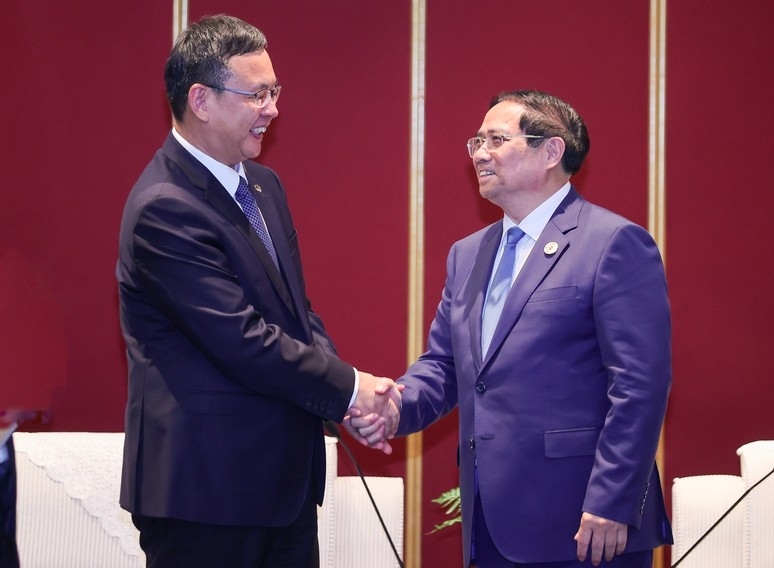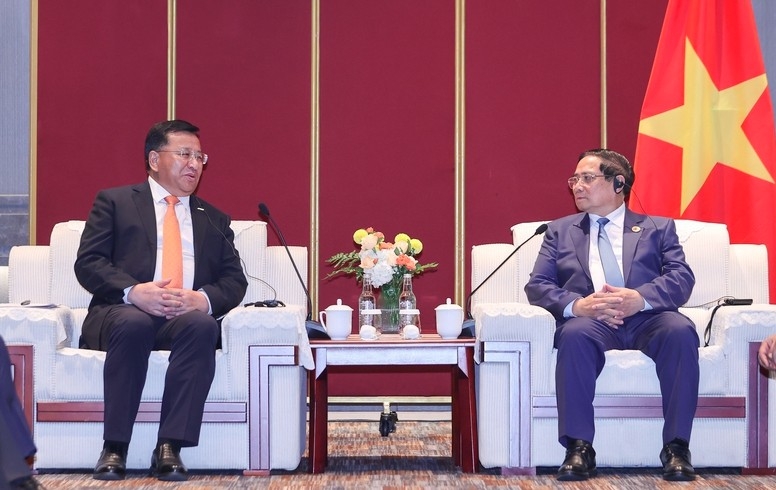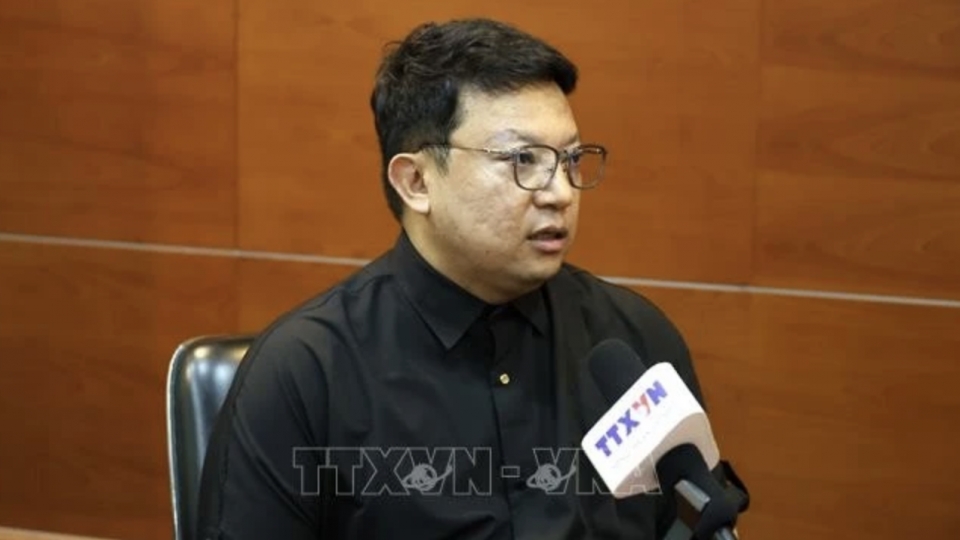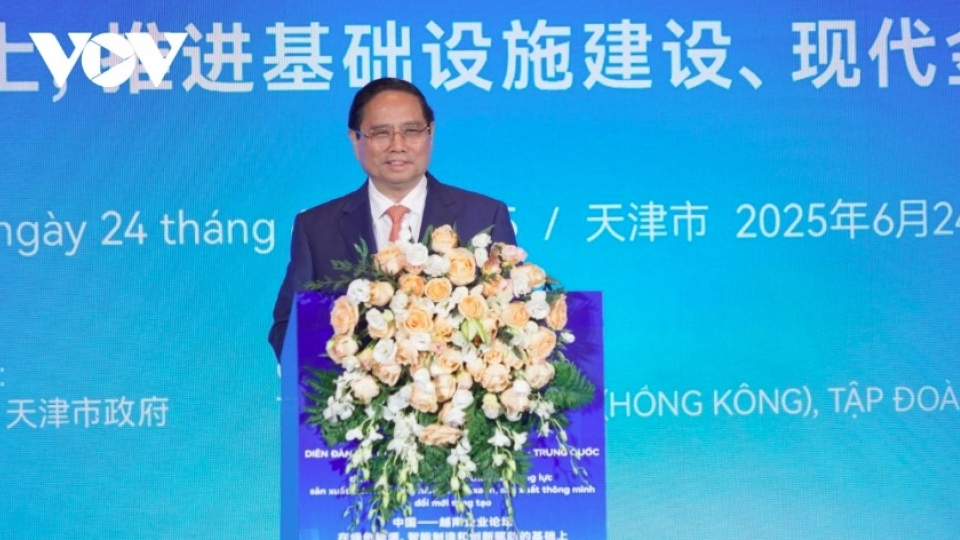Government chief meets leaders of China’s top infrastructure firms to boost transport cooperation
VOV.VN - Prime Minister Pham Minh Chinh met in Tianjin on June 24 with leaders of three major Chinese corporations in railway and transport infrastructure to explore cooperation opportunities, particularly on three cross-border rail routes connecting Vietnam and China.

The Lao Cai–Hanoi–Hai Phong line is slated to break ground in December 2025. The meetings took place during his visit to China for the World Economic Forum’s 16th Annual Meeting of the New Champions (WEF Tianjin 2025).
Those in attendance were Chen Yun, Chairman of China Railway Group Limited (CREC); Dai Hegen , Chairman of China Railway Construction Corporation (CRCC); and Wang Tongzhou, Chairman of China Communications Construction Company (CCCC).
Following the meeting with the Prime Minister, the executives also held a working session with Vietnamese Minister of Construction Tran Hong Minh.
At the meetings, the Chinese business leaders praised PM Chinh’s pragmatic, decisive, and results-oriented leadership, which they said had accelerated project progress. All three corporations expressed strong interest in participating in railway and infrastructure projects in Vietnam.
In addition to railways, CCCC voiced interest in projects such as Lach Huyen and Can Gio seaports; expressways including Ho Chi Minh City–Trung Luong–My Thuan and Ho Chi Minh City–Moc Bai; ring roads and metro systems in Hanoi and Ho Chi Minh City; and nearshore and offshore wind power projects.
PM Pham Minh Chinh welcomed the corporations’ interest and investment plans in Vietnam, particularly in the development of the railway system. He reaffirmed Vietnam’s policy to develop its domestic railway industry and pursue technological self-reliance. He noted that Vietnam has strong demand for railway development, including the North–South high-speed railway, cross-border links with China, and urban railway lines in Hanoi and Ho Chi Minh City as well as for broader transport infrastructure such as roads, seaports, aviation, and urban transport.
To implement high-level agreements between the two countries, PM Chinh said the Vietnam–China Intergovernmental Railway Cooperation Committee will convene soon. Vietnam aims to begin construction of the standard-gauge Lao Cai–Hanoi–Hai Phong railway by December 2025.

The Government leader urged both sides to build on past achievements, learn from prior infrastructure projects, and innovate to accelerate implementation. He stressed that Vietnam will expedite site clearance work.
He also called on the corporations to continue working with the Ministry of Construction and Vietnamese counterparts to advance concrete projects, stay informed of project timelines and market needs, and identify areas for participation. He encouraged the early signing of contracts and emphasized support for Vietnam in developing its railway industry, transferring technology, training high-quality human resources, and enhancing public–private partnerships involving both state-owned and private Vietnamese enterprises.
The Vietnamese government is committed to supporting and facilitating Chinese businesses operating in Vietnam, he added, assigning relevant ministries and localities to provide assistance in ensuring smooth, law-compliant, and fair competition in line with Vietnam’s legal framework and international commitments.
Also on June 24, PM Chinh received Jonathan Choi, Chairman of Hong Kong’s Sunwah Group and of VinaCapital Vietnam.
The PM hailed the group’s investment results in Vietnam and its plans to expand operations. He encouraged investment in high technology, green development, circular economy initiatives, and social housing. He also urged Sunwah to invest more in input material zones, science and technology, and deep processing in agriculture.
He asked the group to support Vietnamese enterprises in joining its supply chains and to contribute to Vietnam’s high-quality workforce development.




